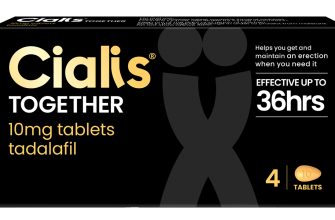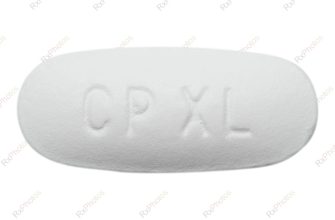Claritin, an over-the-counter antihistamine commonly used to treat allergies, generally does not cause drowsiness. Its active ingredient, loratadine, is classified as a non-drowsy antihistamine, designed specifically to minimize sedative effects while providing relief from allergy symptoms.
Many users find that they can take Claritin during the day without experiencing the sleepiness often associated with other antihistamines. This is a significant advantage for those who need to maintain normal daily activities, such as driving or working.
Individual responses can vary, however. Some people may still experience mild drowsiness, particularly if they are sensitive to the medication or combine it with other substances that cause sedation. For those who notice any fatigue after taking Claritin, consulting with a healthcare professional for personalized advice is advisable.
- Does Claritin Cause Drowsiness?
- How to Avoid Drowsiness
- Understanding Claritin: What Is It?
- Mechanism of Action of Claritin: How It Works
- Histamine Blockade and Its Effects on Drowsiness
- Pill vs. Non-Drowsy Formulations: What’s the Difference?
- Key Differences
- Recommendations
- Factors Influencing Drowsiness: Individual Variability
- Clinical Studies on Claritin and Drowsiness: What Do They Say?
- Comparing Claritin with Other Allergy Medications
- Practical Tips for Managing Allergies Without Drowsiness
- Stay Indoors During High Pollen Count
- Consider Natural Remedies
Does Claritin Cause Drowsiness?
Claritin (loratadine) generally does not cause drowsiness. As a second-generation antihistamine, it is specifically designed to minimize sedative effects compared to first-generation antihistamines like diphenhydramine. Most users can take Claritin without experiencing significant drowsiness.
However, individual reactions can vary. Some people may still feel mild sedation, particularly at higher doses or when combined with other medications or alcohol. If you’re planning activities that require alertness, monitor your response after taking Claritin for the first time.
How to Avoid Drowsiness
If you’re concerned about drowsiness while taking Claritin, consider the following tips: always adhere to the recommended dosage, avoid mixing with alcohol, and consult a healthcare provider if you have underlying health conditions that may increase sensitivity to medications.
For those particularly sensitive to medication, starting with a lower dose may help determine your tolerance while mitigating potential side effects. Always communicate any concerns with your healthcare professional for tailored advice.
Understanding Claritin: What Is It?
Claritin is an antihistamine that effectively relieves allergy symptoms such as sneezing, runny nose, and itchy eyes. Its active ingredient, loratadine, works by blocking histamine, a substance in the body that causes allergic reactions. Claritin is non-drowsy, making it a popular choice for those who want to manage their symptoms without feeling sleepy.
This medication is available over-the-counter, allowing easy access for individuals suffering from seasonal allergies or hives. It typically starts to work within one to three hours, providing relief that can last up to 24 hours with a single dose. Claritin’s convenient once-daily dosing helps users maintain a routine without interruptions.
Claritin comes in various forms, including tablets, liquid gels, and syrup, catering to different preferences. It’s essential to follow the dosage instructions on the package or provided by a healthcare professional to avoid potential side effects. Some users may experience headaches or dry mouth, but these effects are generally mild.
Always consult a healthcare provider before starting any new medication, especially if you have existing medical conditions or are taking other drugs. Claritin can interact with certain medications, so checking with a pharmacist or doctor ensures safe use.
For those managing chronic allergies, Claritin serves as a reliable option. Its long-lasting formula allows users to go about their day without the discomfort of allergy symptoms, facilitating a more enjoyable lifestyle.
Mechanism of Action of Claritin: How It Works
Claritin acts primarily as an antihistamine, specifically targeting the H1 receptor. By binding to these receptors, Claritin blocks the action of histamine, a substance produced by the body during allergic reactions. This action reduces symptoms such as sneezing, runny nose, and itchy eyes.
Unlike first-generation antihistamines, Claritin is classified as a second-generation drug. Its structure allows it to cross the blood-brain barrier minimally, which contributes to its low sedative effects. This makes Claritin a preferred choice for those who need relief from allergies without the drowsiness often associated with other antihistamines.
The pharmacokinetics of Claritin indicate that it is rapidly absorbed in the gastrointestinal tract, reaching peak levels in the bloodstream within 1 to 3 hours after ingestion. Metabolism occurs mainly in the liver, where it is converted into an active metabolite, desloratadine, which continues the antihistaminic effect.
Below is a summary of Claritin’s mechanism of action:
| Mechanism Aspect | Details |
|---|---|
| Drug Class | Second-generation antihistamine |
| Primary Action | Blocks H1 receptors |
| Histamine Role | Causes allergy symptoms |
| Sedation Potential | Low due to minimal CNS penetration |
| Peak Absorption | 1 to 3 hours |
| Metabolism | Converted to desloratadine in the liver |
This profile makes Claritin an optimal choice for allergy management, allowing users to maintain their alertness while effectively controlling symptoms. Always consult with a healthcare professional for personalized advice regarding antihistamine use.
Histamine Blockade and Its Effects on Drowsiness
Claritin, an antihistamine, effectively reduces allergy symptoms without causing significant drowsiness. This is primarily due to its action as a selective H1 receptor antagonist, which minimizes sedation. Traditional antihistamines, such as diphenhydramine, target various histamine receptors, leading to more pronounced sedation and cognitive impairment. In contrast, Claritin’s formulation allows it to cross the blood-brain barrier minimally, thus reducing drowsiness.
Clinical studies show that, while some users might experience mild drowsiness, it is much less frequent compared to first-generation antihistamines. If drowsiness does occur, it usually resolves quickly as the body adjusts to the medication. For those concerned about fatigue, taking Claritin during the evening could help align its effects with nighttime rest.
Patients should assess their reactions to Claritin individually. If drowsiness persists or affects daily activities, consulting a healthcare provider is advisable. They might suggest alternatives or dosage adjustments to optimize comfort and minimize side effects. Tracking any symptoms in a log can aid discussions with the provider, ensuring personalized care.
Pill vs. Non-Drowsy Formulations: What’s the Difference?
Non-drowsy formulations often contain second-generation antihistamines, which have a reduced risk of sedation compared to traditional antihistamines found in pill versions. Claritin, for example, is a widely used non-drowsy option that provides allergy relief without the grogginess associated with first-generation antihistamines like Benadryl.
Key Differences
- Active Ingredients: Pill versions may contain diphenhydramine or chlorpheniramine, which are more likely to cause drowsiness. Non-drowsy alternatives typically include loratadine or cetirizine.
- Side Effects: Non-drowsy formulations generally exhibit fewer side effects related to sleepiness. Some individuals may still experience mild drowsiness from cetirizine, but it’s less common than with older drugs.
- Dosage Frequency: Non-drowsy versions often allow for once-daily dosing, promoting convenience and adherence while minimizing day time drowsiness.
Recommendations
- If you need allergy relief but want to avoid drowsiness, choose non-drowsy formulations like Claritin or Allegra.
- For nighttime use or if sleepiness is not a concern, traditional antihistamines may be beneficial.
- Always consult a healthcare provider if unsure which formulation best suits your needs, particularly if you have underlying health conditions or take other medications.
Factors Influencing Drowsiness: Individual Variability
Drowsiness can vary significantly among individuals taking Claritin due to several factors.
- Genetics: Genetic predispositions can affect how the body processes Claritin. Some individuals may metabolize the medication more slowly, leading to increased drowsiness.
- Age: Older adults may experience heightened sensitivity to medications. This sensitivity can result in a greater likelihood of drowsiness compared to younger individuals.
- Other Medications: Taking multiple medications often impacts drowsiness. Some drugs may amplify the sedative effects of Claritin, particularly other antihistamines or central nervous system depressants.
- Health Conditions: Pre-existing conditions, particularly those affecting the central nervous system, can increase susceptibility to drowsiness. Conditions like sleep apnea or depression may exacerbate this effect.
- Hydration and Nutrition: Dehydration and poor nutrition can affect overall energy levels and exacerbate feelings of fatigue or drowsiness when taking medications like Claritin.
- Sleep Quality: Individuals with compromised sleep quality may report more pronounced drowsiness when using Claritin. A lack of adequate rest can amplify the sedative effects of the drug.
Monitoring personal reactions and consulting a healthcare provider can help mitigate unexpected drowsiness associated with Claritin. Adjusting dosage or switching medications may provide a solution tailored to individual needs.
Clinical Studies on Claritin and Drowsiness: What Do They Say?
Clinical studies consistently show that Claritin, or loratadine, is less likely to cause drowsiness compared to older antihistamines. Research indicates that in most cases, patients taking Claritin experience minimal sedation effects, with only about 1% reporting drowsiness. This positions Claritin as a more favorable option for those needing relief from allergies while maintaining daily activities.
A double-blind, placebo-controlled trial assessing the sedative effects of loratadine highlighted that participants exhibited significantly less sedation than those taking traditional antihistamines, like diphenhydramine. Objective measurements, such as performance on cognitive tests and reaction times, confirmed that Claritin has a minimal impact on mental alertness.
Another study explored the effects of Claritin on individuals with various allergies. Participants noted improved allergy symptoms without the common side effect of fatigue. These findings underscore the suitability of Claritin for daytime use, making it a popular choice among allergy sufferers seeking relief without compromising their energy levels.
For optimal results, consider taking Claritin as directed on the label. Always consult a healthcare professional for personalized advice, especially if you have existing health conditions or take other medications. This will help ensure you achieve the intended benefits while minimizing any potential side effects.
Comparing Claritin with Other Allergy Medications
Claritin (loratadine) stands out for its minimal drowsiness effect compared to some other allergy medications. Users often find it suitable for daytime use, allowing them to maintain productivity without the sedative side effects associated with antihistamines like Benadryl (diphenhydramine).
Allegra (fexofenadine) provides an alternative with a similar non-drowsy profile. Both Claritin and Allegra are second-generation antihistamines, making them favorable options for those who need relief from sneezing, runny nose, and itchy eyes while staying alert.
Zyrtec (cetirizine), while effective, may induce more sleepiness in some individuals than Claritin. This could be a deciding factor for those sensitive to drowsiness. Users should weigh their need for allergy relief against potential sedation when choosing between these options.
Some may opt for prescription medications like Xyzal (levocetirizine), which may also cause drowsiness, although it is slightly less sedating than Zyrtec. For severe symptoms, nasal corticosteroids such as Flonase or Nasacort can be effective and do not typically cause drowsiness, making them a solid choice for managing allergy symptoms without affecting daily activities.
Choosing the right allergy medication involves considering personal tolerance to drowsiness, the specific symptoms experienced, and the duration of action needed. Consulting with a healthcare provider can help you make an informed choice based on individual health needs and lifestyle preferences.
Practical Tips for Managing Allergies Without Drowsiness
Choose a non-drowsy antihistamine like loratadine or cetirizine to alleviate allergy symptoms without the fatigue associated with some medications. Make sure to read labels to confirm their effects.
Stay Indoors During High Pollen Count
Check daily pollen forecasts and avoid outdoor activities when counts are elevated. Keeping windows closed and using air conditioning can significantly reduce exposure to allergens. A HEPA filter in your home enhances air quality by trapping particles.
Consider Natural Remedies
Local honey may help your body build immunity to local pollen. Also, nasal saline irrigation with a neti pot can clear allergens from your nasal passages. These methods can provide relief without causing drowsiness.
Regular cleaning routines help minimize dust and mold accumulation indoors. Use an air purifier in your bedroom to enhance sleep quality while keeping allergens at bay. Staying hydrated and maintaining a balanced diet also support overall well-being during allergy seasons.










